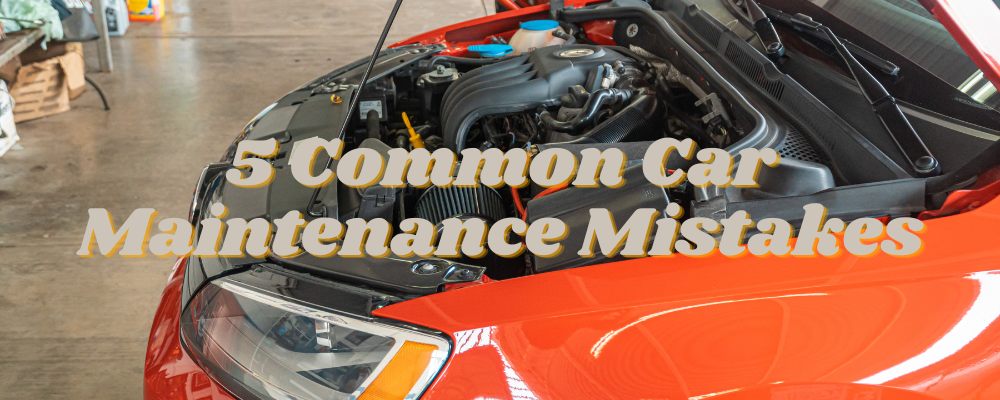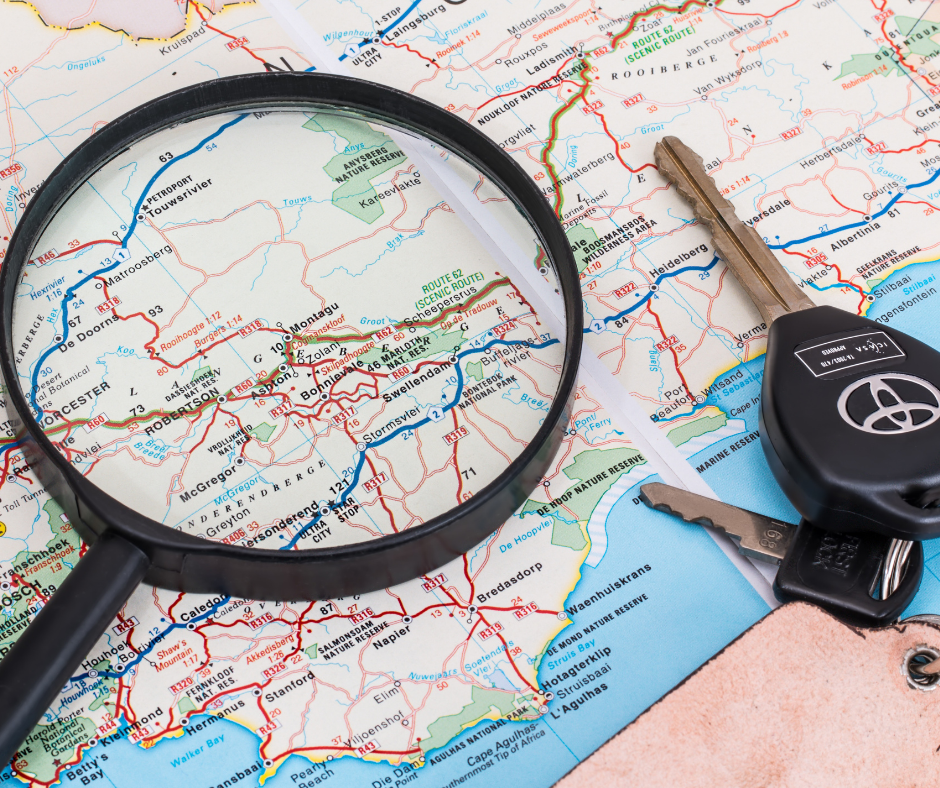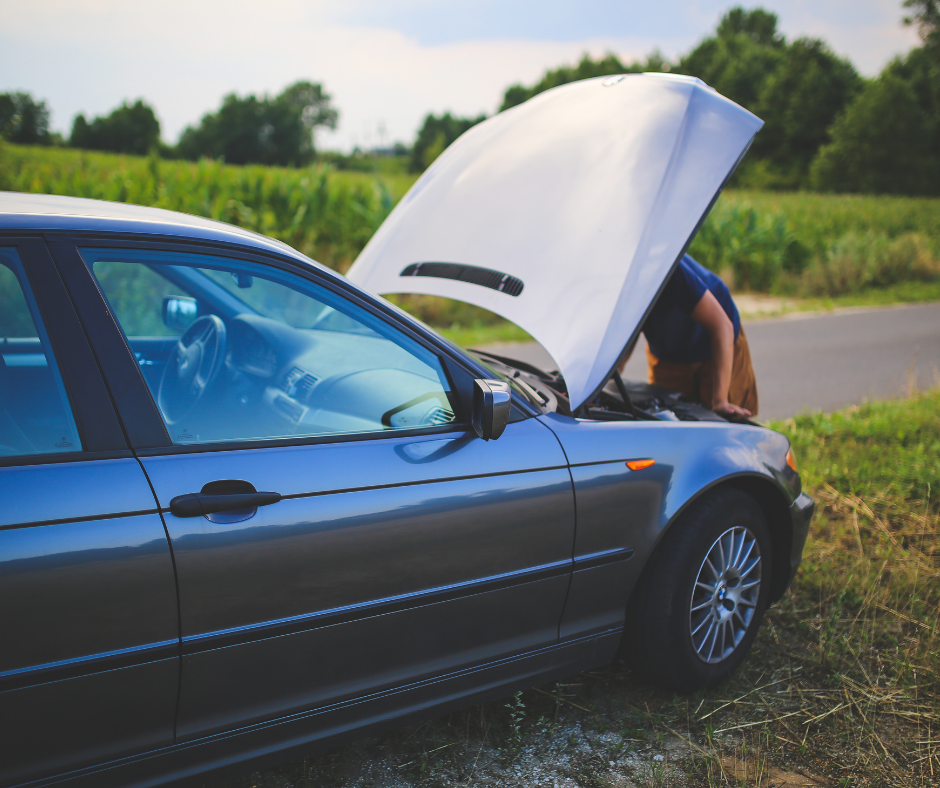
For your car to last a long time, perform well, and keep you safe, you must maintain it well. However, many car owners make car maintenance mistakes that lead to expensive repairs or even accidents.
By avoiding these car maintenance mistakes you may save money, keep your car in good condition for many years to come and prevent breakdowns.
Here, we discuss five of the most common car maintenance mistakes. These pointers will keep your car in excellent condition whether you do your own repairs or rely on experts. From neglecting regular maintenance to ignoring warning lights, we’ll cover the most important aspects of car care that every driver should know.
Neglecting Regular Maintenance
One of the biggest car maintenance mistakes that car owners make is skipping routine maintenance. Many drivers assume that if their car seems to be running fine, there’s no need to perform regular maintenance tasks. However, this can cause significant issues later on.
Regular maintenance tasks include oil changes, tire rotations, fluid checks, and more. These tasks are crucial for keeping your car running smoothly and preventing larger problems from developing. By neglecting regular maintenance, you risk the following consequences:
Increased Wear and Tear
Regular maintenance helps keep your car’s engine and other components running smoothly. Otherwise, components deteriorate more quickly, leading to more frequent failures and expensive repairs.
Reduced Fuel Efficiency
Regular maintenance tasks like oil changes and tire rotations can also improve your car’s fuel efficiency. Neglecting these tasks can lead to decreased fuel efficiency, costing you more money at the gas pump.
Safety Hazards
Regular maintenance tasks like brake inspections and fluid checks are crucial for ensuring your car is safe to drive. Neglecting these tasks can put you and your passengers at risk of accidents or breakdowns on the road.
Follow your car’s maintenance plan and arrange regular checkups with a qualified technician to prevent skipping out on necessary maintenance. You can keep your car in good working order and prevent more expensive issues in the future by keeping up with routine maintenance.
Skipping Oil Changes
Skipping oil changes is another common car maintenance mistake that car owners make. The engine of a car depends on oil to lubricate its moving parts and disperse heat. The engine experiences greater wear and tear as a result of oil degradation and loss of effectiveness over time. Skipping oil changes can lead to the following consequences:
Increased Engine Wear
Without fresh oil, your car’s engine will start to wear down more quickly, leading to more frequent breakdowns and expensive repairs. Over time, this can even lead to engine failure, requiring a costly replacement.
Decreased Fuel Efficiency
Old oil can also decrease your car’s fuel efficiency, costing you more money at the gas pump. Fresh oil helps to reduce friction and improve engine performance, leading to better fuel economy.
Engine Overheating
Old oil can also lead to engine overheating, as it becomes less effective at dissipating heat. This can cause your engine to seize up and require expensive repairs.
To avoid skipping oil changes, it’s important to follow your car’s maintenance schedule and have your oil changed regularly. Depending on your driving habits and the oil you use, generally, car manufacturers recommend changing the oil every 5,000 to 7,500 miles.
Using the wrong oil can harm your engine, therefore it’s crucial to use the right kind for your vehicle. By staying on top of oil changes, you can keep your engine running smoothly and avoid more costly problems down the road.
Forgetting to Check Tire Pressure and Rotate Tires
Forgetting to check tire pressure and rotate tires is another common car maintenance mistake that car owners make. Your car’s tires are the only point of contact with the road, and the performance, fuel efficiency, and safety of your vehicle may be impacted by the caliber of those tires.
Neglecting to check tire pressure and rotate tires can lead to the following consequences:
Decreased Fuel Efficiency
Low tire pressure can decrease your car’s fuel efficiency, costing you more money at the gas pump. Underinflated tires create road friction, which makes your engine work harder to maintain pace.
Uneven Tire Wear
Neglecting to rotate your tires can cause uneven tire wear, leading to the need for premature replacement. Uneven tire wear can also cause your car to pull to one side, affecting its handling and safety on the road.
Safety Hazards
Tires that are either under or over-inflated might compromise the safety of your car on the road. Overinflated tires give you a more uneven ride. A tire’s center wears out considerably more quickly than the edges when it is overinflated because the outer tread pattern rounds out.
Low pressure means that too much of the tire touches the road, increasing friction and greatly reducing the life of your tires.
To avoid forgetting to check tire pressure and rotate tires, it’s important to follow your car’s maintenance schedule and have regular inspections done by a professional mechanic. The majority of manufacturers advise rotating your tires every 5,000 to 7,500 miles and checking your tire pressure at least once each month. You can keep your car running smoothly and increase your safety on the road by keeping up with tire maintenance.
Ignoring Warning Lights
Ignoring warning lights is another common car maintenance mistake that car owners make. The warning lights on your vehicle are intended to inform you of potential difficulties, from little niggles to serious problems that need quick attention. Ignoring warning lights can lead to the following consequences:
Increased Repair Costs
Ignoring warning lights can lead to more expensive repairs down the road. A little problem that might have been quickly fixed could become a significant issue if ignored.
Safety Hazards
Some warning lights, such as the check engine light or the brake system warning light, indicate serious safety hazards that need to be addressed immediately. Ignoring these warning lights can put you and your passengers at risk of accidents or breakdowns on the road.
Decreased Fuel Efficiency
Some warning lights, such as the tire pressure warning light, indicate issues that can affect your car’s fuel efficiency. Ignoring these warning lights can lead to decreased fuel economy and increased costs at the gas pump.
To avoid ignoring warning lights, it’s important to pay attention to them when they appear and address the underlying issue promptly. Some warning lights may indicate minor issues that can be resolved with a simple fix, such as tightening the gas cap or replacing a burned-out lightbulb. Other warning lights may require more extensive repairs, such as a faulty catalytic converter or a malfunctioning brake system.
By addressing warning lights promptly, you can keep your car running smoothly and avoid more costly problems down the road.
Overlooking Brake Maintenance
Overlooking brake maintenance is another common car maintenance mistake that car owners make. Brakes allow you to slow down and stop when necessary. Neglecting brake maintenance can lead to the following consequences:
Reduced Stopping Power
Over time, your car’s brake pads wear down and become less effective at slowing down and stopping your car. Neglecting brake maintenance can lead to reduced stopping power, making it more difficult to avoid accidents or stop in emergency situations.
Increased Repair Costs
Neglecting brake maintenance can also lead to more expensive repairs down the road. If ignored, what might have started out as a tiny problem that was easily fixable could grow into a significant concern.
Safety Hazards
Overlooking brake maintenance can also lead to serious safety hazards on the road. You run a higher chance of collisions or breakdowns on the road if your brakes are compromised by worn-out brake pads, leaking brake fluid, or other problems.
To avoid overlooking brake maintenance, it’s important to follow your car’s maintenance schedule and have regular inspections done by a professional mechanic.
It is recommended to change brake pads every 25000 to 50000 miles, however, this may vary based on the driving style and the type of brakes. It’s also important to have your brake fluid checked regularly and replaced as needed. You can keep your car running smoothly and improve your safety on the road by keeping up with brake maintenance.
Recap Of The 5 Common Car Maintenance Mistakes To Avoid
Regular maintenance is essential to keep the car in excellent condition, ensure your safety while driving, and avoid expensive downtime.
By avoiding common car maintenance mistakes such as neglecting regular maintenance, skipping oil changes, forgetting to check tire pressure and rotate tires, ignoring warning lights, and overlooking brake maintenance, you can help extend the lifespan of your car and reduce the risk of breakdowns or accidents.
Addressing minor issues promptly can help prevent more significant problems down the road and save you money in the long run.
Hand Held Vacuum and Pressure Pump Brake Clutch Fluid Bleeder Tool Kit
YSTOOL
- The YSTOOL multi-functional vacuum pressure pump kit is particularly useful for changing brake clutch fluid and power steering fluid, but it can also be used to test a wide range of important vehicle settings and operations, including those for computerized engine control devices, ignition control devices, air conditioning and heating controls, cruise control systems, and brake systems. Use the hand pump to create negative pressure in the braking system, which will allow the fresh oil to flow throughout the whole system while sucking away the old oil and air.
- Wide usage
- Easy to operate




